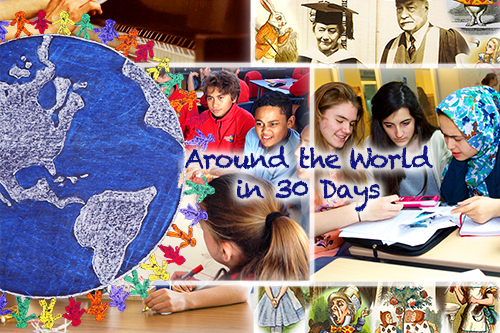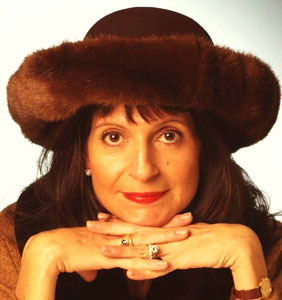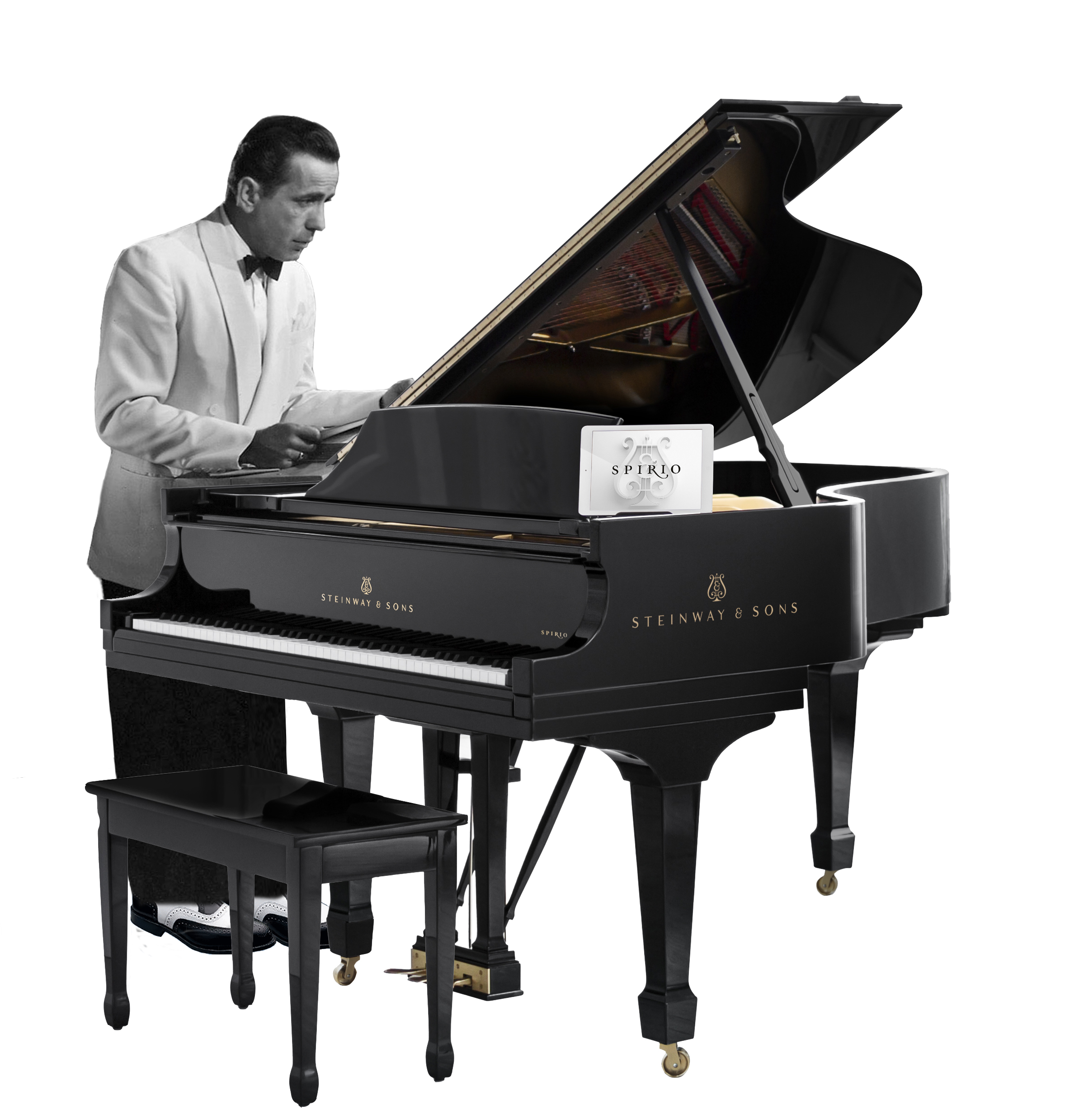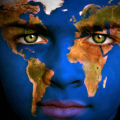
“I robot che si preoccupano per noi come noi invecchiare. Attacchi informatici contro le nostre case. animali estinti riportati in vita. I sensori Ubiquitous eliminando privacy come lo conosciamo oggi. Ognuno avrà uno scandalo! In dieci anni, un piccolo auricolare sarà sussurrare ciò che viene detto a voi nella vostra lingua madre nei pressi simultaneamente alla lingua straniera parlata.” Sono d'accordo con Alec Ross, autore di The Industries of the Future, that the most important job I have is being a Mom. My kids are growing up with challenges and opportunities my generation thought were fantastical themes in movie scripts.
What does this all mean for how we prepare our kids in school? What do we teach them about the innovations that are available right now and what do we teach them to ensure they are part of the innovations that are coming soon? For five years, Il Global Ricerca per l'Educazione has been exploring those questions; once again this month, we share more fascinating insights from around the world. Michael Sweeney, CEO of Steinway & Sons, talked to me about the impact his new concert pianist – a robot called Spirio – will have on the world of music. Executive business leader Roland Kupers in The Netherlands wants us to focus more on systems learning. Director of Infinity Learn Limited, Dr Brian Annan in New Zealand, shares his vision for the future of schools, including why “some students will not see the need to go to school at all.” Ultimo, ma non per importanza, our top global teacher bloggers share tested tips for cultivating readers, and I reflect on my newest adventures in Wonderland as the book I originally published over 5 years ago goes back into stores just in time for Disney’s new film, Alice Through The Looking Glass.
Imagine Lang Lang performing Chopin at Carnegie Hall, but you live in Dallas and can’t make it to New York. With Spirio, there is the potential for the concert to be live-streamed into your living room. Michael Sweeney, CEO of Steinway & Sons, discusses the miraculous capabilities of Steinway’s Spirio (a new high-resolution player piano that provides an unrivaled musical experience, indistinguishable from a live performance) and offers some insight into the future of music.
Dr. Brian Annan’s company, Infinity Learn Ltd, explores the merger of learning and wellbeing. In his interview with Il Global Ricerca per l'Educazione, Brian envisions a future for schools that will extend the boundaries out into museums, librerie, the corporate world and environmental communities. “[Queste] places are potential sites for learning and development whereby our youth contribute to community and environmental improvement. So the community at large rather than the school or network of schools is seen as the vital engine room for integration of technology and media.”
Roland Kupers wants students to develop the kind of habits conducive to understanding their world in all its complexity. We need a new science that is capable of explaining the intricacy that has been introduced to the world by globalization and technological advances. Per esempio: “Understanding the influence of climate change on the crises of agriculture, urbanization and poverty in the Middle East casts a different light on the links between environmental policy and terrorism, and our choices therein”; e “Understanding that a human body is constituted of 90% non-human cells sheds a different light on the nature of our individuality.”
Language is the ultimate tool of humanity. Il nostro Maestro globale Bloggers sono pionieri e innovatori in campi quali l'integrazione della tecnologia, matematica di coaching, studenti disabili, istruzione di scienza, e parità di genere. This month we asked them to share answers to the question: How do we do a better job of cultivating young readers? Our experts from very diverse schools around the globe agreed that reading should be more fun and fulfilling than forced and tedious. We should not only teach reading but engender a love of literature. “Come educatori, we should be role models. If we want our students to love reading, we need to love reading,” Note di Todd Finley.
And speaking of books…. did you know that after the bible and Shakespeare, Alice In Wonderland is the most quoted book of all time? It’s been five years since my daughter and I self-published The Real Alice in Wonderland, a book which tells the actual story behind the publication of the handwritten, hand illustrated original manuscript, Avventure della metropolitana di Alice, which Lewis Carroll gave as an early Christmas present to our relative Alice Liddell in 1864. A simple question – “Mamma, how are we related to Alice Liddell?” – made us very curious. This led to research, a successful school book day presentation, a series of creative book workshops, and then meetings with booksellers which culminated in the production of our lush coffee table book now in stores again 5 years after it was first released. As Alice would I am sure agree, curiosity is a truly amazing gift – it takes you down rabbit holes where you are able to explore fantastical problems and learn important things in the doing. And when that curiosity is nurtured, who knows how far you might go? What new opportunities might present themselves? What life changing experiences might be had?
Our thanks to all our friends and supporters around the world – Always be curious!
(Le foto sono per gentile concessione di CMRubinWorld)

Unitevi a me e leader di pensiero di fama mondiale tra cui Sir Michael Barber (Regno Unito), Dr. Michael Block (Stati Uniti), Dr. Leon Botstein (Stati Uniti), Il professor Argilla Christensen (Stati Uniti), Dr. Linda di Darling-Hammond (Stati Uniti), Dr. MadhavChavan (India), Il professor Michael Fullan (Canada), Il professor Howard Gardner (Stati Uniti), Il professor Andy Hargreaves (Stati Uniti), Il professor Yvonne Hellman (Paesi Bassi), Il professor Kristin Helstad (Norvegia), Jean Hendrickson (Stati Uniti), Il professor Rose Hipkins (Nuova Zelanda), Il professor Cornelia Hoogland (Canada), Onorevole Jeff Johnson (Canada), Sig.ra. Chantal Kaufmann (Belgio), Dr. EijaKauppinen (Finlandia), Sottosegretario di Stato TapioKosunen (Finlandia), Il professor Dominique Lafontaine (Belgio), Il professor Hugh Lauder (Regno Unito), Signore Ken Macdonald (Regno Unito), Il professor Geoff Masters (Australia), Il professor Barry McGaw (Australia), Shiv Nadar (India), Il professor R. Natarajan (India), Dr. PAK NG (Singapore), Dr. Denise Papa (Stati Uniti), Sridhar Rajagopalan (India), Dr. Diane Ravitch (Stati Uniti), Richard Wilson Riley (Stati Uniti), Sir Ken Robinson (Regno Unito), Professor Pasi Sahlberg (Finlandia), Il professor Manabu Sato (Giappone), Andreas Schleicher (PISA, OCSE), Dr. Anthony Seldon (Regno Unito), Dr. David Shaffer (Stati Uniti), Dr. Kirsten Immersive Are (Norvegia), Cancelliere Stephen Spahn (Stati Uniti), Yves Theze (LyceeFrancais Stati Uniti), Il professor Charles Ungerleider (Canada), Il professor Tony Wagner (Stati Uniti), Sir David Watson (Regno Unito), Professor Dylan Wiliam (Regno Unito), Dr. Mark Wormald (Regno Unito), Il professor Theo Wubbels (Paesi Bassi), Il professor Michael Young (Regno Unito), e il professor Zhang Minxuan (Porcellana) mentre esplorano le grandi questioni educative immagine che tutte le nazioni devono affrontare oggi.
Il Global Ricerca per l'Educazione della Comunità Pagina
C. M. Rubin è l'autore di due ampiamente lettura serie on-line per il quale ha ricevuto una 2011 Premio Upton Sinclair, “Il Global Ricerca per l'Educazione” e “Come faremo a Leggere?” Lei è anche l'autore di tre libri bestseller, Compreso The Real Alice in Wonderland, è l'editore di CMRubinWorld, ed è un disgregatore Foundation Fellow.
Segui C. M. Rubin su Twitter: www.twitter.com/@cmrubinworld





Commenti recenti